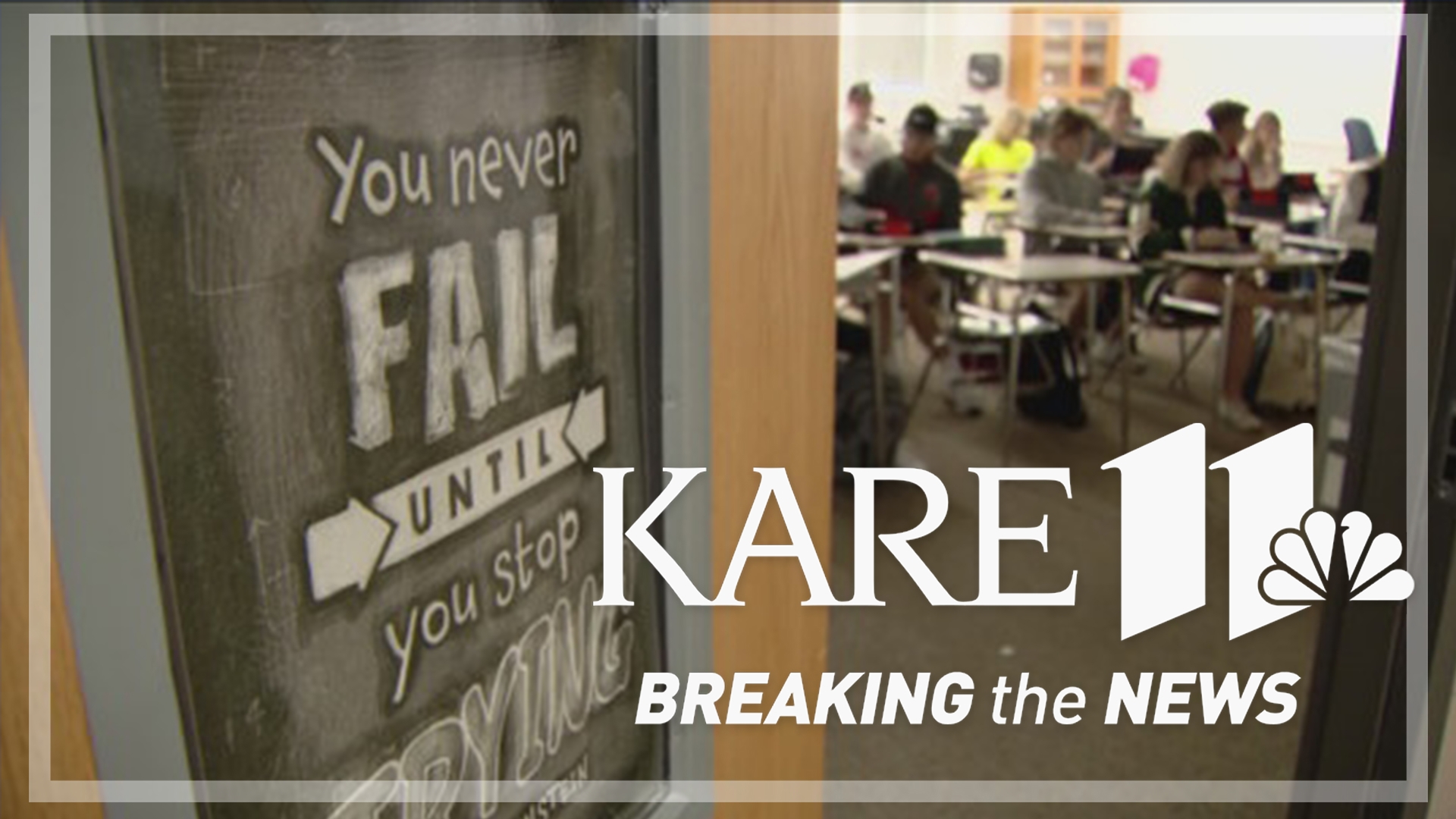MINNETONKA, Minn — In a letter to district families and staff addressing "significant financial challenges," Minnetonka Public Schools Superintendent David Law acknowledges he's received questions on what "caused this."
"Dozens of metro school districts and districts across the state that are in the same spot that we're in," Law said. "All of us are in the same financial straits. If we're not there this year, they'll be there next year."
That comes as a surprise to many families, because in 2023 the Minnesota Legislature passed a $2.3 billion increase in public school funding. The phrase "fully funded schools" was used a lot.
And with that big boost in taxpayer money that included free lunches for all students, the question is raised: How could a district like Minnetonka have a $6 million budget deficit?
But Superintendent Law says many people don't realize there were limitations to that funding increase.
"That historic investment in education included some things that doesn't allow us to pay teachers," he said. "There was an investment in free lunch for students that was very important for a lot of people across the state and our families that are receiving that are benefiting from that. [But that and other funding streams included in the bill] don't allow us to pay our operating costs during the school year."
The biggest cost for every school district is the salaries paid to teachers and staff. The 2023 Education Bill included a one-time 4% increase to the funding formula followed by a 2% increase the next year.
But one thing Law is trying to explain to Minnetonka families is that those percentages did not keep up with inflation.
"You know, inflation was higher than 4% during that time. And so it didn't catch up to the costs and it didn't cover 20 years of underfunding," he said.
Faced with the prospect of laying off teachers and staff, 48 districts across the state this year have questions on their ballots for taxpayers, many of them to decide whether to increase the per-pupil funding amount paid through property taxes.
Those ballot questions can be tough asks for those people who believe public schools already receive enough money through the legislature.
And through prior referendums, some districts like Minnetonka have already reached the amount allowed by the state to avoid disparities between public districts -- so that is no longer an option.
"The majority of our funding is people in front of kids. Over 70% of our funding is teachers, so if we have to make a reduction, 70% of that reduction likely will be the people that are in front serving kids. So we're doing everything we can to avoid that," Law said.
With large and small districts facing many of the same funding problems currently, Superintendent Law believes there will be a lot of talk about it at the next legislative session.

